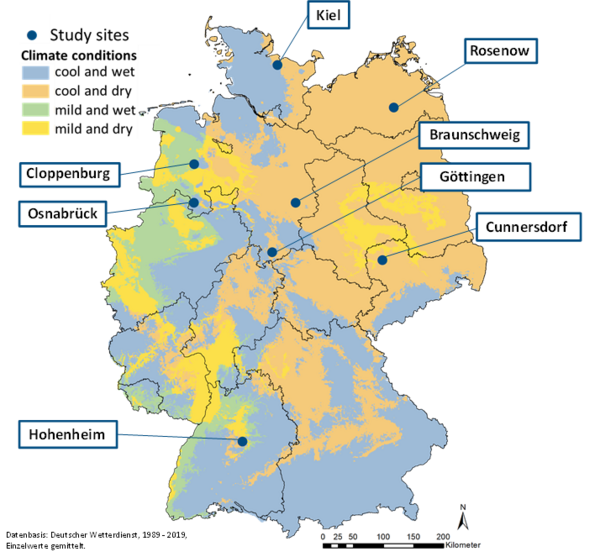Course of action

The joint project includes both a Germany-wide network of coordinated field (7 locations) and laboratory tests (4 laboratories) with soils from selected locations. All nitrification inhibitors available in Germany are used in combination with mineral and organic nitrogen fertilizers.
In the field trials, the effect of the nitrification inhibitors on the nitrification process in the soil, the greenhouse gas emissions, the ammonia emissions and the quality and amount of the crop yields are recorded. The trials are mainly carried out with winter wheat and broccoli. In order to verify the effects on yield, trials with increasing N rates are also carried out. Field trials with multi-year NI applications on the same trial plots serve to investigate the long-term effects of nitrification inhibitors on the nitrification potential of the soil. The effect of nitrification inhibitors on N2O emissions and ammonia emissions under controlled incubation conditions on different soil types is investigated in laboratory experiments. The leaching of fertilizer nitrogen and active ingredients are recorded in column experiments. In addition, the soil microbiome of selected soil samples from the field and laboratory tests will be investigated.
To integrate the project results, the effects of nitrification inhibitors are modeled and regionalised. Possible climate protection effects are to be mapped in Germany's greenhouse gas emissions inventory. The use of nitrification inhibitors as a possible climate protection measure is comprehensively evaluated and the knowledge generated will be made available to agricultural practice.








